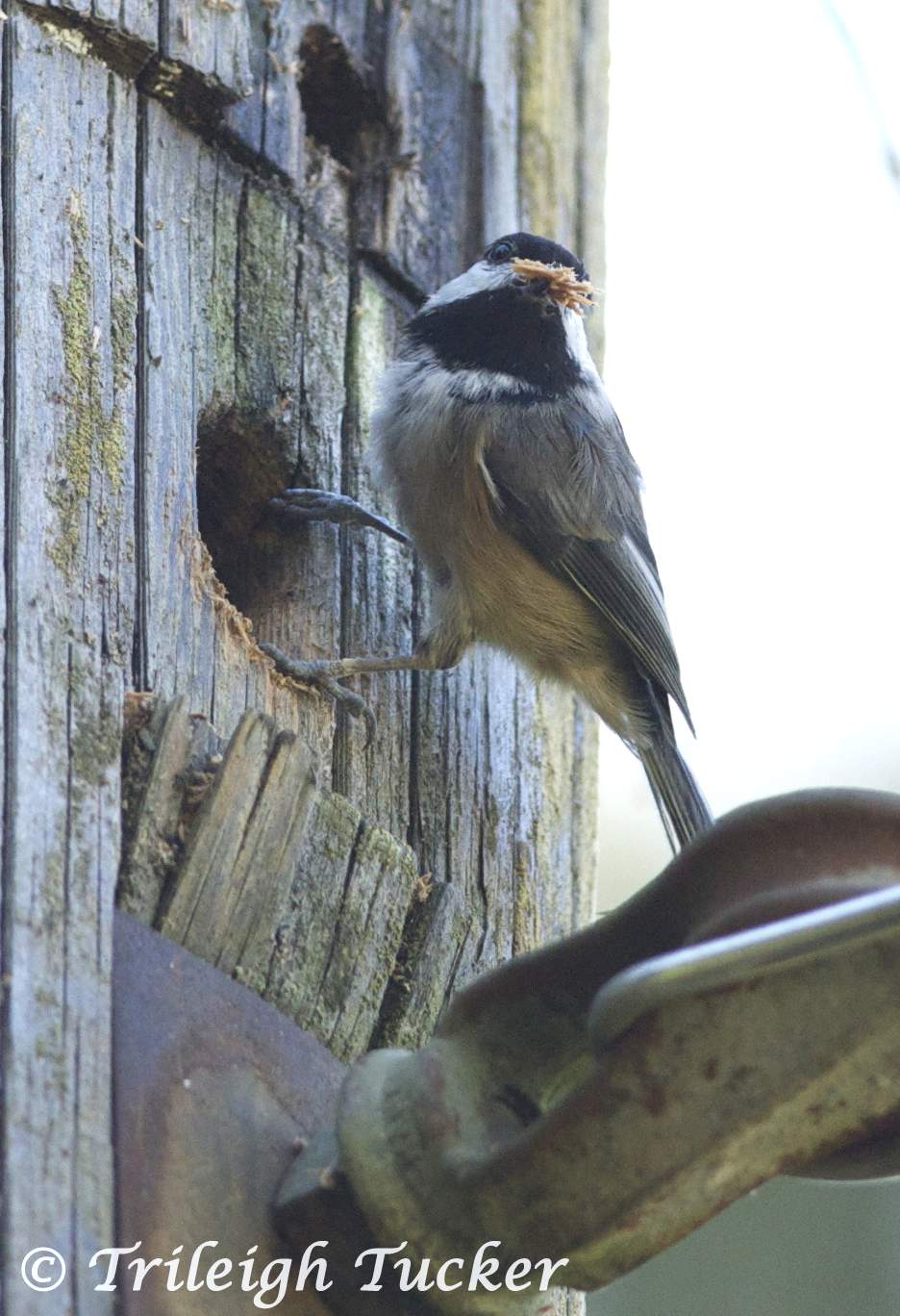
This black-capped chickadee made an old utility pole in West Seattle its home. Photo courtesy of Trileigh Tucker.
Taking care of the animals, fish and birds that live in the areas where we operate is an important part of how we do business at Seattle City Light.
That’s why we were happy to hear from West Seattle customer and longtime bird watcher Trileigh Tucker, who had spotted several chickadees nesting inside an old utility pole on Wright Avenue that was scheduled for removal as soon as CenturyLink transferred its communications lines from the old pole to a new one that has already been installed.
“To me the whole thing is an ethic of care. It’s a concern about the natural world wherever it shows up,” said Tucker, an environmental studies professor at Seattle University. “There are tons of chickadees. Yes, they could find another nest, but every pair that can nest comfortably where they are produces more of the little birds we love.”
After Tucker spotted the little birds making a nest, her partner, Rob Duisberg, noticed City Light crews working on the pole the next day so Tucker called Audubon Seattle for suggestions. Audubon directed Tucker to the state Department of Fish and Wildlife and Seattle City Light. Calls to both organizations were answered in about 30 minutes and City Light staff started investigating the situation.
“(Seattle City Light) probably gets more calls about the eagles, but the little guys are a part of the system too,” Tucker said.
Sr. Electrical Services Representative Patrick Williams, who lives nearby, visited the site that evening. He found that the pole the chickadees had selected for their nest was installed in 1928. Over its lengthy time in service, the pole had deteriorated and needed to be replaced.
Seattle City Light has already installed a new pole, moved its power lines to that new pole and removed part of the old pole. Standard procedure is then to notify any communications companies that also are using the pole that they need to move their lines and remove the remaining section of the old pole.
After learning about the nesting birds, Williams and Seattle City Light Wildlife Biologist Ron Tressler worked with CenturyLink to delay transfer of CenturyLink’s communications lines and removal of the old pole until after the nesting season.
“You can deliver reliable, low-cost electricity to customers and be good stewards of the environment,” City Light Wildlife Biologist Ron Tressler said. “It really helps when customers like Trileigh spot wildlife activity that might create a conflict with our operations so we can make good decisions about how to proceed and ensure compliance with the Migratory Bird Treaty Act.”
Tucker, who has written about the experience on her own blog, was delighted with the solution.
“Ten out of 10, not only by the quick and positive response, but the fact that I could talk to a human being,” she said. “You all really care. You’re right on it, you know the law and you care about the birds.”
If you spot a situation where wildlife might be coming into conflict with utility operations, contact Seattle City Light’s Environmental Affairs Division at (206) 684-3270.